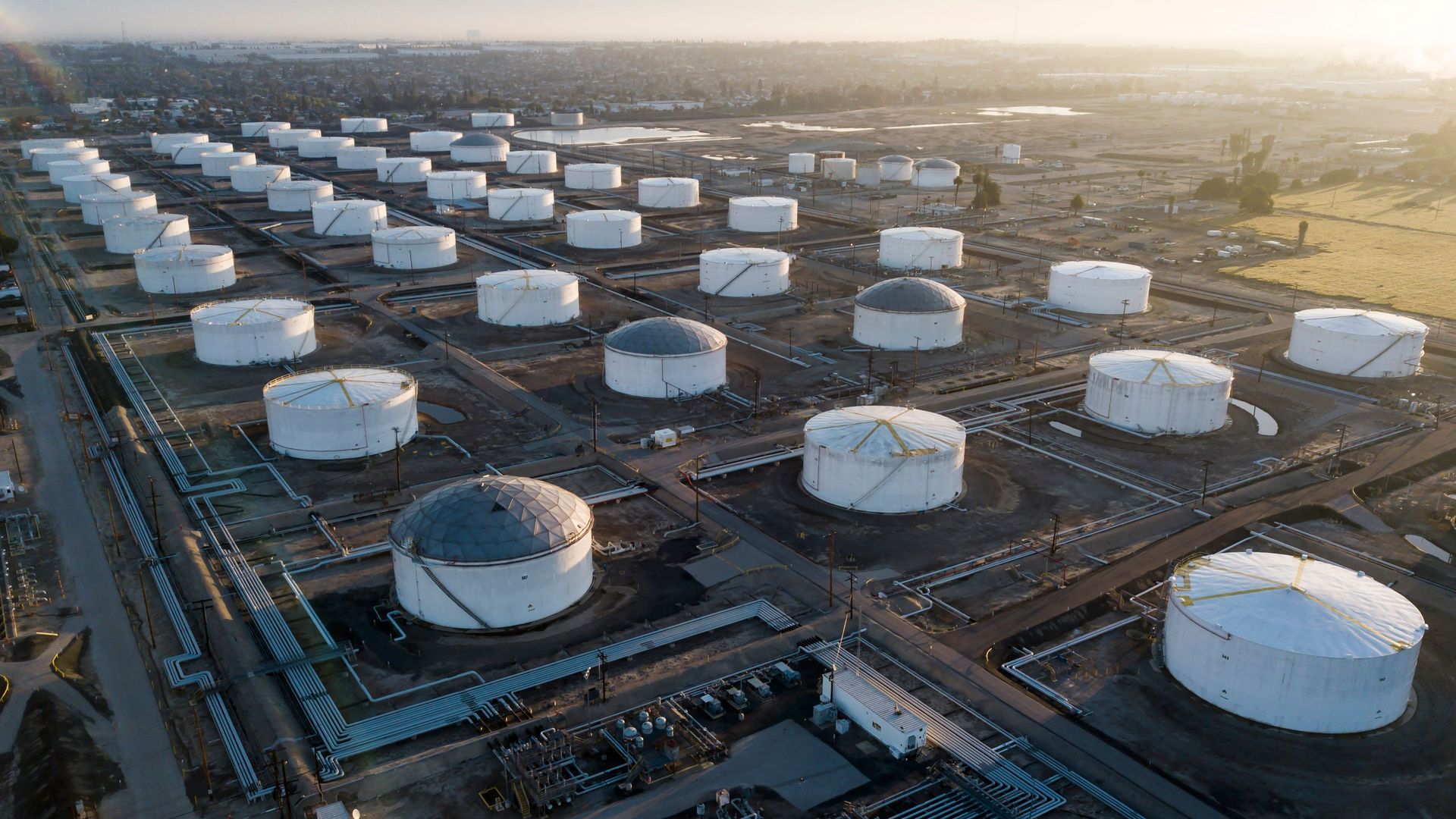Coronavirus drives crude oil owners to hunt around for alternative storage
Add Axios as your preferred source to
see more of our stories on Google.

Oil storage tanks in Carson, California, on Saturday. Photo: Robyn Beck/AFP via Getty Images
There is so much crude oil in the world and so little demand for it that owners of the oil are asking companies storing other liquid products — ranging from ethanol to vegetable oils — if they can rent their tanks.
The big picture: The odd development reveals how the novel coronavirus pandemic is upending the logistics running and feeding America. It’s not easy to convert storage, but it’s likely happening or will happen soon, experts say.
The intrigue: Kip Middendorf, managing director of Wolf Lake Terminals Inc., in Indiana, said he's been approached by owners of oil to use his tanks.
- "If they're finding a company like ours, they’re scouring the Earth looking for tanks," Middendorf said, noting their company is relatively small.
- "I have no doubt that a number of companies are repositioning their assets to provide this storage."
By the numbers: Middendorf, who is also chairman of the International Liquid Terminals Association, which represents all these companies, estimates that about 20% of the non-oil storage could be converted to crude oil storage.
- That equals about 260 million barrels of potential capacity, though it’s not clear how much of this is already under contract for other uses.
- That's far more than what the Energy Department has at its disposal to lease to companies out of the nation’s Strategic Petroleum Reserve. There’s under 80 million barrels of excess capacity there.
Yes, but: It's not so simple to temporarily fill a tank meant for, say, vegetable oil, with crude oil. Middendorf said he's considering doing it. But it's not clear whether he'd be able to repurpose his tank back to using it for vegetable oil (in his case, this includes soybean and canola).
- "There’s a whole process to determine if that tank would ever be clean enough to go back into service for food grade products again," Middendorf said.
- Ultimately, if the price is right (high enough), companies will accept, though Middendorf wouldn’t dish on the prices he’s been offered.
- "There is a premium for storing crude right now if we were to take the contract. I’m not going to jump into what are the prices," Middendorf said.
The bottom line: This is unlikely to stem a massive supply glut caused by so many of us not driving or flying, but it could make a difference to individual companies.
Go deeper: World locked down and drowning in oil
